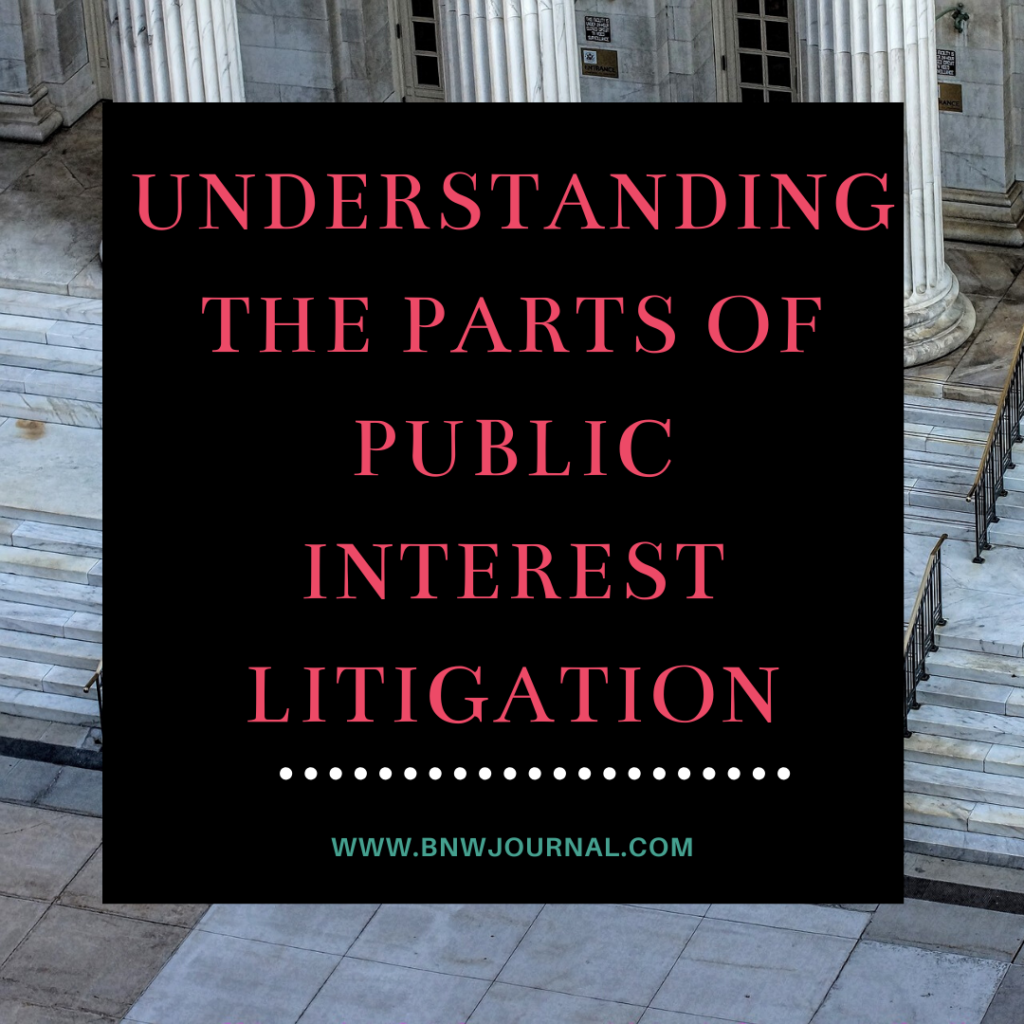![]()
INTRODUCTION
Previously only the affected parties had the locus standi (standing required in law) to file a case and continue the litigation and the non- affected persons had no locus standi to do so.

But now only the victim doesn’t need to file a complaint in the court. There are many cases where third-person file complain as public interest litigation in the court. People can act as public interest litigators when the victim is illiterate, poor facing poverty, or for many other reasons, etc.
Cases mainly comes under as a litigation for the protection of Public Interest; such as pollution, Terrorism, Road safety, constructional hazards, etc.
It is mainly filed when there is a violation of Human Rights, violation of government policies, violation of religious rights, or other basic fundamental rights.
The poor too have civil and political rights and the rule of law is meant for them also. Though today, it exists only on paper and not in reality.
WRIT PETITIONS UNDER PUBLIC INTEREST LITIGATION WILL BE ACCEPTED IN THE FOLLOWING CASES:
(i) It is only where the letter is addressed by an aggrieved person or
(ii) a public-spirited individual or
(iii) a social action group for enforcement of the legal rights of a person in custody or of a class or group of persons who because of poverty, disability or socially or economically disadvantaged position find it difficult to approach the court.
JURISDICTION
It is to file under the following sections
1) Under Art 32 of the Indian Constitution, in the Supreme court.
2) Under Art 226 of the Indian Constitution, in the High court.
3) Under sec. 133 of the Criminal Procedure Code, in the court of Magistrate.
Justice V. R. Krishna Iyer and P. N. Bhagwati recognized the possibility of providing access to justice to the poor and the exploited people by relaxing the rules. Courts of record declares PIL as a rule of law. However, the person filing the petition must prove to the satisfaction of the court that the petition is filed for the public interest and not as a frivolous litigation for pecuniary gain.
The invocation of the Writ Jurisdiction of the Supreme Court takes place under Article 32 of the Constitution; for the guarantee of violation of fundamental rights under Part – III of the Constitution.
Any executive or legislative action, which infringes upon the Fundamental Rights of any person or any group of persons, is declaratory void according to the Courts under Article 13 of the Constitution.
PARTIES INVOLVED
There is an involvement of two parties such as Public interest and private interest,
In case of public following cases which are inclusive such as,
i) bonded labor matters
ii) matters of neglected children
iii) exploitation of casual laborers and non-payment of wages to them (except in individual cases)
iv) matters of harassment or torture of persons belonging to Scheduled Castes, Scheduled Tribes and Backward Castes, either by Police or by co-villagers
v) matters relating to environmental pollution, disturbance of ecological balance, drugs, food adulteration, maintenance of heritage and culture, antiques, forests, and wildlife.
vi) petitions from riot victims and
vii) Petitions against police for refusing to register a case, harassment by police, death in police custody.
viii) Petitions against atrocities on women, in particular, harassment of bride, bride-burning, rape, murder, kidnapping etc
ix) other matters of public importance.
In the case of Private interest take following cases into account such as(inclusive):
i) threat to or harassment of the petitioner by private persons,
ii) seeking an inquiry by an agency other than the local police,
iii) seeking police protection,
iv) landlord-tenant dispute,
v) service matters
CASES THAT CANNOT BE FILED BY PUBLIC INTEREST LITIGATION
- Landlord-tenant matters
- Service matters
- Matters about pension and gratuity
- Admission to medical and other educational institutions
- Petitions for early hearing of cases pending in High Court or subordinate courts
CASES OF PUBLIC INTEREST LITIGATION
Justice P.N. Bhagawati headed a new era of the PIL movement in the case of S.P. Gupta v. Union of India. This case holds that any member of the public or social action group acting bonafide can invoke the Writ Jurisdiction of the High Courts or the Supreme Court; in order to seek redressal against violation of legal or constitutional rights of persons who, due to social or economic or any other disability, cannot approach the Court.
This judgment makes PIL a potent weapon for the enforcement of public duties in action or misdeed resulting in public injury. And as a result any citizen of India or any consumer groups or social action groups can now approach the apex court of the country seeking legal remedies in all cases where the interests of the general public or a section of the public are at stake.
ADVANTAGES OF PUBLIC INTEREST LITIGATION
Minimal court fees to Public Interest Litigation is necessary.
It gives a wider description of the right to equality, life, and personality which is a guarantee under part III of the Constitution of India.
It is an effective instrument for changes in society or social welfare.
REMEDIES
Remedies are mainly given to the disadvantaged section of the society of the population to whom accessing the legal section is kind of difficult. The injury must arise out of breach of public duty or violation of the law
After the introduction of public interest litigation progress took place; such as India, it has the most progressive social legislation to be found anywhere in the world
liberal interpretation of locus standi where the proxy can file a case on behalf of others who get violated by the other.
Part IV of the Constitution had come into the force.
Judgments have been given or focused on poor people too. One of the cases, states that if anyone gets less pay they can apply to the supreme court without going through the labor commission process.
If the petitioner is Economically weaker then it is not necessary to provide all the information it can be collected by the commissions of the court in the case of public interest litigation.
CONCLUSION
In certain places there was the abuse of the Public interest litigation by the people. So to reduce it, it had become necessary to take certain steps such as:
Court must review that petitioner who approaches it is acting bona fide and not for personal gain, private profit, or political reason.
Writs are filed by individuals or institutions for their benefit and not for the public interest, whereas PILs are filed for a larger good.



0 Comments